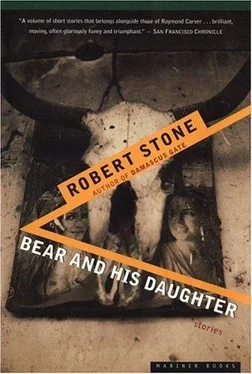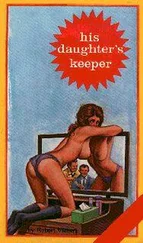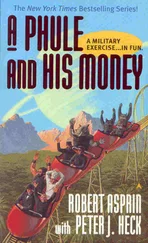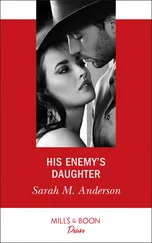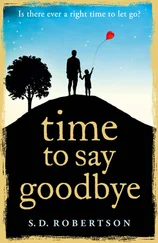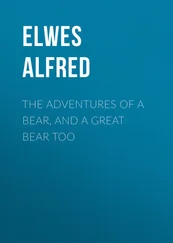The bartender was a club fighter from Pittsfield called Jackie G., with whom Elliot had often gossiped. Jackie G. greeted him as though he had been in the previous evening. “Say, babe?”
“How do,” Elliot said.
A couple of the men at the bar eyed his shirt and tie. Confronted with the bartender he felt impelled to explain his presence. “Just thought I’d stop by,” he told Jackie G. “Just thought I’d have one. Saw the light. The snow…” He chuckled expansively.
“Good move,” the bartender said. “Scotch?”
“Double,” Elliot said.
When he shoved two dollars forward along the bar Jackie G. pushed one of the bills back to him. “Happy hour babe.”
“Ah,” Elliot said. He watched Jackie pour the double. “Not a moment too soon.”
For five minutes or so, Elliot sat in his car in the barn with the engine running and his Handel tape on full volume. He had driven over from East Ilford in a Baroque ecstasy, swinging and swaying and singing along. When the tape ended, he turned off the engine and poured some Scotch into an apple juice container to store providentially beneath the car seat. Then he took the tape and the Scotch into the house with him. He was lying on the sofa in the dark living room, listening to the Largo, when he heard his wife’s car in the driveway. By the time Grace had made her way up the icy back-porch steps, he was able to hide the Scotch and rinse his glass clean in the kitchen sink. The drinking life, he thought, was lived moment by moment.
Soon she was in the tiny cloakroom struggling off with her overcoat. In the process she knocked over a cross-country ski, which stood propped against the cloakroom wall. It had been more than a year since Elliot had used the skis.
She came into the kitchen and sat down at the table to take off her boots. Her lean, freckled face was flushed with the cold, but her eyes looked weary. “I wish you’d put those skis down in the barn,” she told him. “You never use them.”
“I always like to think,” Elliot said, “that I’ll start the morning off skiing.”
“Well, you never do,” she said. “How long have you been home?”
“Practically just walked in,” he said. Her pointing out that he no longer skied in the morning enraged him. “I stopped at the Conway Library to get the new Oxford Classical World. Candace ordered it.”
Her look grew troubled. She had caught something in his voice. With dread and bitter satisfaction, Elliot watched his wife detect the smell of whiskey.
“Oh God,” she said. “I don’t believe it.”
Let’s get it over with, he thought. Let’s have the song and dance.
She sat up straight in her chair and looked at him in fear.
“Oh, Chas,” she said, “how could you?”
For a moment he was tempted to try to explain it all.
“The fact is,” Elliot told his wife, “I hate people who start the day cross-country skiing.”
She shook her head in denial and leaned her forehead on her palm and cried.
He looked into the kitchen window and saw his own distorted image. “The fact is I think I’ll start tomorrow morning by stringing head-high razor wire across Anderson’s trail.”
The Andersons were the Elliots’ nearest neighbors. Loyall Anderson was a full professor of government at the state university, thirty miles away. Anderson and his wife were blond and both of them were over six feet tall. They had two blond children, who qualified for the gifted class in the local school but attended regular classes in token of the Andersons’ opposition to elitism.
“Sure,” Elliot said. “Stringing wire’s good exercise. It’s life-affirming in its own way.”
The Andersons started each and every day with a brisk morning glide along a trail that they partly maintained. They skied well and presented a pleasing, wholesome sight. If, in the course of their adventure, they encountered a snowmobile, Darlene Anderson would affect to choke and cough, indicating her displeasure. If the snowmobile approached them from behind and the trail was narrow, the Andersons would decline to let it pass, asserting their statutory right-of-way.
“I don’t want to hear your violent fantasies,” Grace said.
Elliot was picturing razor wire, the army kind. He was picturing the decapitated Andersons, their blood and jaunty ski caps bright on the white trail. He was picturing their severed heads, their earnest blue eyes and large white teeth reflecting the virginal morning snow. Although Elliot hated snowmobiles, he hated the Andersons far more.
He looked at his wife and saw that she had stopped crying. Her long, elegant face was rigid and lipless.
“Know what I mean? One string at mommy-and-daddy level for Loyall and Darlene. And a bitty wee string at kiddie level for Skippy and Samantha, those cunning little whizzes.”
“Stop it,” she said to him.
“Sorry,” Elliot told her.
Stiff with shame, he went and took his bottle out of the cabinet into which he had thrust it and poured a drink. He was aware of her eyes on him. As he drank, a fragment from old Music’s translation of Medea came into his mind. “Old friend, I have to weep. The gods and I went mad together and made things as they are.” It was such a waste; eighteen months of struggle thrown away. But there was no way to get the stuff back in the bottle.
“I’m very sorry,” he said. “You know I’m very sorry, don’t you, Grace?”
The delectable Handel arias spun on in the next room.
“You must stop,” she said. “You must make yourself stop before it takes over.”
“It’s out of my hands,” Elliot said. He showed her his empty hands. “It’s beyond me.”
“You’ll lose your job, Chas.” She stood up at the table and leaned on it, staring wide-eyed at him. Drunk as he was, the panic in her voice frightened him. “You’ll end up in jail again.”
“One engages,” Elliot said, “and then one sees.”
“How can you have done it?” she demanded. “You promised me.”
“First the promises,” Elliot said, “and then the rest.”
“Last time was supposed to be the last time,” she said.
“Yes,” he said, “I remember.”
“I can’t stand it,” she said. “You reduce me to hysterics.” She wrung her hands for him to see. “See? Here I am, I’m in hysterics.”
“What can I say?” Elliot asked. He went to the bottle and refilled his glass. “Maybe you shouldn’t watch.”
“You want me to be forbearing, Chas? I’m not going to be.”
“The last thing I want,” Elliot said, “is an argument.”
“I’ll give you a fucking argument. You didn’t have to drink. All you had to do was come home.”
“That must have been the problem,” he said.
Then he ducked, alert at the last possible second to the missile that came for him at hairline level. Covering up, he heard the shattering of glass, and a fine rain of crystals enveloped him. She had sailed the sugar bowl at him; it had smashed against the wall above his head and there was sugar and glass in his hair.
“You bastard!” she screamed. “You are undermining me!”
“You ought not to throw things at me,” Elliot said. “I don’t throw things at you.”
He left her frozen into her follow-through and went into the living room to turn the music off. When he returned she was leaning back against the wall, rubbing her right elbow with her left hand. Her eyes were bright. She had picked up one of her boots from the middle of the kitchen floor and stood holding it.
“What the hell do you mean, that must have been the problem?”
He set his glass on the edge of the sink with an unsteady hand and turned to her. “What do I mean? I mean that most of the time I’m putting one foot in front of the other like a good soldier and I’m out of it from the neck up. But there are times when I don’t think I will ever be dead enough — or dead long enough — to get the taste of this life off my teeth. That’s what I mean!”
Читать дальше
